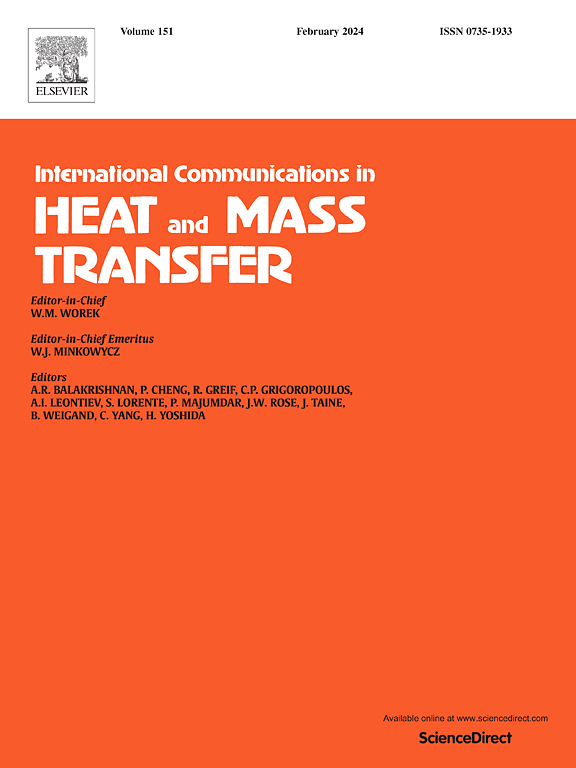Prediction of multiple complex crude oil condensation points based on least squares support vector machine
IF 6.4
2区 工程技术
Q1 MECHANICS
International Communications in Heat and Mass Transfer
Pub Date : 2025-07-21
DOI:10.1016/j.icheatmasstransfer.2025.109319
引用次数: 0
Abstract
The prediction of multiple complex crude oil condensation points has attracted great attention in oil and gas industry. In this paper, firstly, a least squares vector machine parameter optimization method based on Bayesian algorithm is proposed, and a prediction model is established and applied to predict the condensation point of various complex crude oils. Then, the proposed algorithm is compared with the existing condensation point prediction methods and the standard Least squares support vector machine (LSSVM) model. Thirdly, it confirms the feasibility of the proposed method for actual production processes, ensuring the safety and stability of crude oil transportation. Results show that: (a) The Bayesian algorithm uses probabilistic surrogate models and collection functions to effectively optimize the parameters of the model to the most suitable values. (b) The LSSVM algorithm based on Bayesian optimization increases the computation time and maximum absolute deviation (MAD) of the samples. (c) Although the method proposed in this article slightly increases computation time, it can achieve higher accuracy.
基于最小二乘支持向量机的多重复杂原油凝点预测
多复杂原油凝点预测一直是油气行业关注的热点问题。本文首先提出了一种基于贝叶斯算法的最小二乘向量机参数优化方法,建立了预测模型并应用于各种复杂原油凝点的预测。然后,将该算法与现有的凝点预测方法和标准最小二乘支持向量机(LSSVM)模型进行了比较。再次,在实际生产过程中验证了所提方法的可行性,保证了原油运输的安全稳定。结果表明:(a)贝叶斯算法利用概率代理模型和集合函数有效地将模型参数优化到最合适的值。(b)基于贝叶斯优化的LSSVM算法增加了样本的计算时间和最大绝对偏差(MAD)。(c)本文提出的方法虽然稍微增加了计算时间,但可以达到更高的精度。
本文章由计算机程序翻译,如有差异,请以英文原文为准。
求助全文
约1分钟内获得全文
求助全文
来源期刊
CiteScore
11.00
自引率
10.00%
发文量
648
审稿时长
32 days
期刊介绍:
International Communications in Heat and Mass Transfer serves as a world forum for the rapid dissemination of new ideas, new measurement techniques, preliminary findings of ongoing investigations, discussions, and criticisms in the field of heat and mass transfer. Two types of manuscript will be considered for publication: communications (short reports of new work or discussions of work which has already been published) and summaries (abstracts of reports, theses or manuscripts which are too long for publication in full). Together with its companion publication, International Journal of Heat and Mass Transfer, with which it shares the same Board of Editors, this journal is read by research workers and engineers throughout the world.

 求助内容:
求助内容: 应助结果提醒方式:
应助结果提醒方式:


